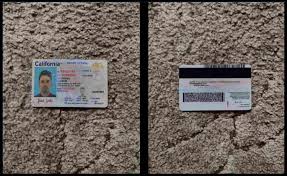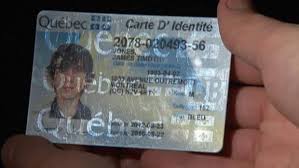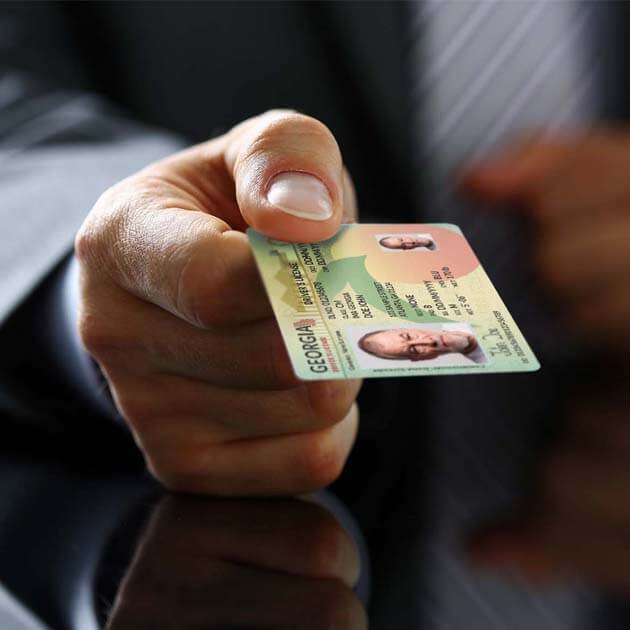texas id holograms
Outline
- Introduction
- Holograms: The Future of ID Verification
- Importance of Secure Identification
- H1: Understanding Texas ID Holograms
- H2: What Are ID Holograms?
- H3: The Role of Holograms in Security
- H3: Why Texas Adopted Holograms in IDs
- H1: The Technology Behind Texas ID Holograms
- H2: How Holograms Are Created
- H3: Types of Holograms Used in Texas IDs
- H3: The Science of Light and Image Projection
- H1: Benefits of Holograms in Texas IDs
- H2: Enhanced Security Features
- H3: Preventing Counterfeiting
- H3: Easy Verification by Authorities
- H1: How Texas ID Holograms Prevent Fraud
- H2: The Fight Against Identity Theft
- H3: Real-World Cases of Hologram Efficacy
- H3: Collaboration with Law Enforcement
- H1: The Future of Holograms in Identification
- H2: Upcoming Innovations in ID Holograms
- H3: Potential for Nationwide Adoption
- H4: The Role of AI and Blockchain in ID Security
- H1: Conclusion
- Summarizing the Importance of Texas ID Holograms
- Future Implications for Identity Verification
- H1: FAQs
- What Makes Texas ID Holograms Different?
- How Can You Tell if a Texas ID Hologram is Real?
- Are Holograms the Only Security Feature on Texas IDs?
- Will Holograms Ever Become Obsolete?
- How Do Holograms Compare to Other ID Security Measures?
Texas ID Holograms: A Revolutionary Step in Identity Verification
In a world where identity theft and fraudulent activities are on the rise, the state of Texas has taken significant steps to secure its residents' identities. One of the most advanced measures introduced is the incorporation of holograms in Texas IDs. But what exactly are these holograms, and why are they so important? In this article, we’ll dive deep into the world of Texas ID holograms, exploring the technology behind them, their benefits, and their role in preventing fraud.
Understanding Texas ID Holograms
What Are ID Holograms?
Holograms are three-dimensional images created by the interference of light beams from a laser or other coherent light source. In the context of identification, they are used as security features that are difficult to duplicate or forge, making them an essential component of modern ID cards.
The Role of Holograms in Security
Holograms serve as a highly effective security feature because they are complex to produce and verify. Unlike simple printed images, holograms change appearance when viewed from different angles, adding a layer of security that static images cannot provide. This dynamic visual effect makes it nearly impossible for counterfeiters to create a convincing replica.
Why Texas Adopted Holograms in IDs
Texas adopted holograms in their state-issued IDs to combat the growing issue of identity fraud. By integrating these advanced security features, the state aims to provide a more secure and reliable form of identification, ensuring that the individuals presenting these IDs are who they claim to be.
The Technology Behind Texas ID Holograms
How Holograms Are Created
Creating a hologram is a meticulous process that involves recording the light field reflected from an object. This is typically done using lasers, which capture the precise details of the object, creating a three-dimensional image that can be embedded onto an ID card.
Types of Holograms Used in Texas IDs
Texas IDs incorporate various types of holograms, including multi-layered holograms, which offer multiple levels of security. These holograms may include images, texts, or patterns that shift and change when viewed from different angles, making them highly resistant to tampering or counterfeiting.
The Science of Light and Image Projection
At the core of holographic technology is the manipulation of light. By recording and projecting light waves, holograms create the illusion of depth and movement. This scientific principle not only makes holograms visually striking but also extremely difficult to replicate without specialized equipment.
Benefits of Holograms in Texas IDs
Enhanced Security Features
The primary benefit of incorporating holograms into Texas IDs is the enhanced security they provide. Holograms are not just decorative; they are sophisticated tools designed to protect personal information and verify identity with a high degree of accuracy.
Preventing Counterfeiting
One of the biggest challenges in identity verification is preventing counterfeiting. Holograms make this task significantly easier by introducing elements that are nearly impossible to duplicate accurately. The unique properties of holograms mean that any attempt to copy or forge an ID will be immediately noticeable.
Easy Verification by Authorities
Holograms also simplify the verification process for authorities. Because they are easy to spot and difficult to fake, law enforcement and other officials can quickly and confidently verify the authenticity of an ID. This speeds up the identification process and reduces the risk of errors.
How Texas ID Holograms Prevent Fraud
The Fight Against Identity Theft
Identity theft is a major concern, not just in Texas but across the entire country. Holograms play a crucial role in the fight against this crime by providing a secure means of verifying identities. The dynamic and intricate designs of holograms are nearly impossible for criminals to replicate, making Texas IDs much more secure.
Real-World Cases of Hologram Efficacy
There have been numerous instances where holograms have proven their worth in preventing fraud. For example, in cases where counterfeit IDs were presented, the lack of a legitimate hologram was often the first red flag that led to further investigation, ultimately preventing fraudulent activity.
Collaboration with Law Enforcement
The implementation of holograms in Texas IDs has also led to stronger collaboration between the state and law enforcement agencies. These agencies are trained to recognize and verify holograms, making it easier to spot counterfeit IDs and take appropriate action.
The Future of Holograms in Identification
Upcoming Innovations in ID Holograms
As technology continues to advance, so too will the capabilities of holograms. Future innovations may include even more complex designs, integration with digital verification methods, and perhaps even the use of holograms in conjunction with biometric data to create an unparalleled level of security.
Potential for Nationwide Adoption
While Texas has been a leader in the use of holograms for ID verification, the success of this initiative could pave the way for nationwide adoption. Other states may follow suit, recognizing the value that holograms bring in preventing identity theft and fraud.
The Role of AI and Blockchain in ID Security
The future of ID security may also see the integration of artificial intelligence (AI) and blockchain technology. AI could be used to analyze and verify holograms more efficiently, while blockchain could offer a secure and immutable record of holographic data, further enhancing the security of identification documents.
Conclusion
The incorporation of holograms into Texas IDs represents a significant advancement in the realm of identity verification. By utilizing this cutting-edge technology, Texas has taken a proactive stance against identity theft and fraud, ensuring that its residents are protected by one of the most secure forms of identification available today. As we look to the future, the potential for further innovation in holographic technology holds the promise of even greater security and peace of mind for all.
FAQs
What Makes Texas ID Holograms Different?
Texas ID holograms are designed with advanced multi-layered technology that offers multiple levels of security, making them highly resistant to counterfeiting.
How Can You Tell if a Texas ID Hologram is Real?
A genuine Texas ID hologram will change appearance when viewed from different angles and should display intricate details that are difficult to replicate.
Are Holograms the Only Security Feature on Texas IDs?
No, Texas IDs incorporate several security features, including microprinting, UV ink, and embedded chips, in addition to holograms.
Will Holograms Ever Become Obsolete?
While technology continues to evolve, holograms are likely to remain a crucial security feature for the foreseeable future, especially as they are integrated with other advanced technologies.
How Do Holograms Compare to Other ID Security Measures?
Holograms are one of the most effective security features due to their complexity and visual dynamicity, making them superior to many other methods such as simple watermarks or static images.
 MississippiDLFake ID
MississippiDLFake ID
 IndianaFake ID
IndianaFake ID
 MassachusettsFake ID
MassachusettsFake ID
 MichiganFake ID
MichiganFake ID
